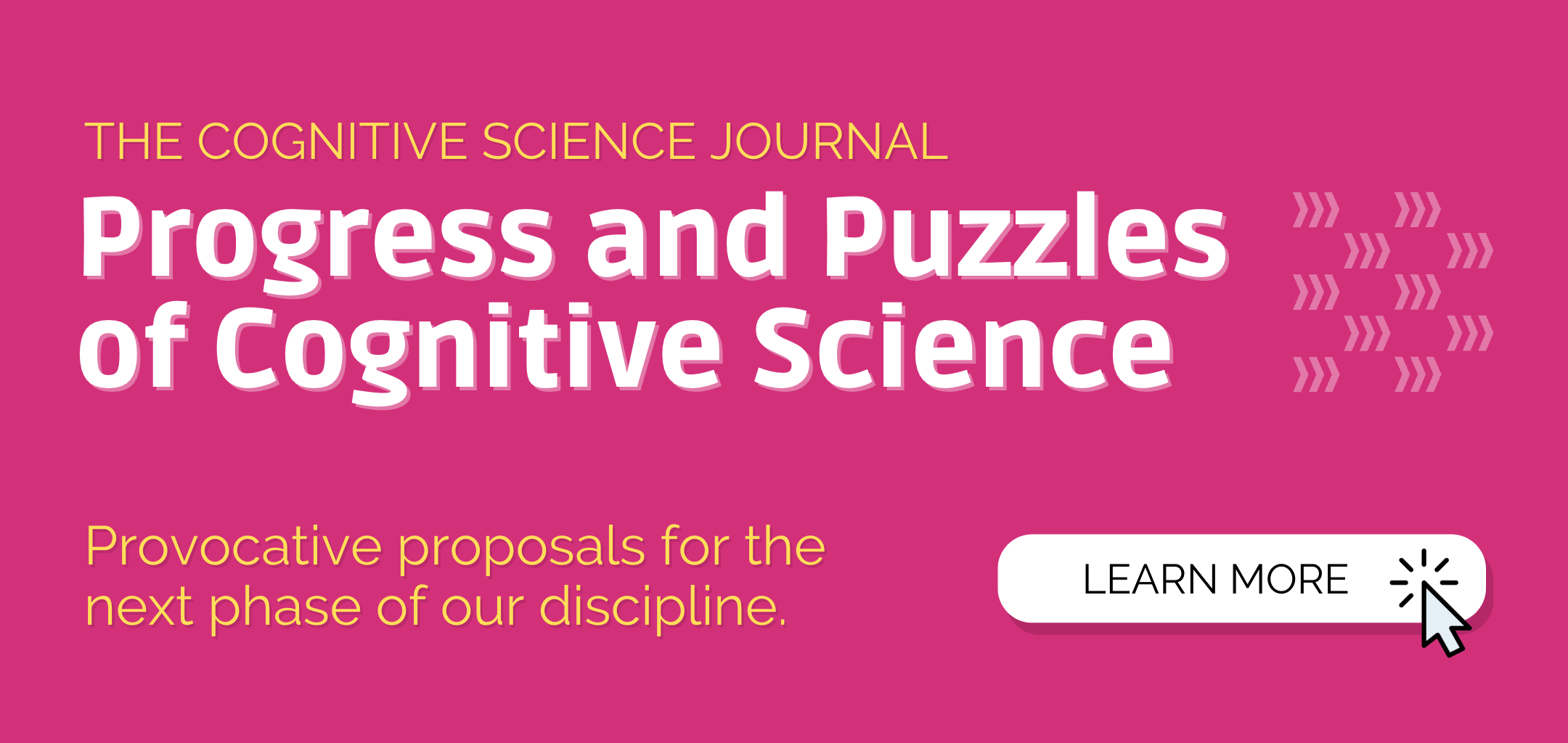Progress and Puzzles of Cognitive Science
Letters to the Journal of Cognitive Science
Across 2022, the journal Cognitive Science invited submissions to a special initiative entitled, “Progress and Puzzles of Cognitive Science.” The purpose of this initiative was to publish concise and provocative proposals for the next phase of our discipline. To review submissions, a team of Editorial Board members kindly contributed their time and expertise in addition to their usual editorial duties.
Motivation and Submission Types
Several concerns have been raised about the direction of cognitive science. These concerns include whether its interdisciplinary roots are eroding (Gentner, 2010), and whether it lacks a coherent conceptual or curricular core (Nuñez et al., 2018). These concerns have elicited considerable debate (see discussion in Gray, 2019), with many noting that cognitive science remains robust, evolving in its own distinct way (e.g., Bender, 2019). The Editorial Board of Cognitive Science has decided to use the platform of the journal to pursue potential solutions to these critical questions. The goal is not to revisit the specifics of the above debate. Rather, this CfL is to share with the community concise and provocative visions, both to reframe the past and conceptualize the future.
We invite submissions on the following two themes:
- Progress of Cognitive Science: What concepts, models, theories or findings belong at the core of cognitive science? These should be viable as centerpieces of our discipline — for inclusion as core knowledge, and as part of the curricular structure of our field’s training. These submissions should frame progress in innovative ways, going beyond simply a review of one’s favored current theory and findings. For example, a submission about Marr’s levels as such a centerpiece should not simply review Marr, but rather innovatively compel its inclusion as a critical element of theoretical and empirical progress. Authors may also consider new ways to reframe or reconsider past work in wholly unfamiliar form. For example, perhaps there is an anecdote, allegory or conceptual model used in labs or with colleagues, too pithy to have found its way into a paper, but with great potential as a waypoint for the field under this CfL.
- Puzzles of Cognitive Science: What critical next steps are important for our field? We might make an analogy with Hilbert’s famous 23 problems of mathematics — what are the problems facing our field, and how do we determine if they have been solved? These may be critical next steps for theoretical development, such as computational models or adapting our default assumptions from the philosophy of science. They may be critical empirical questions that are unsolved yet central to mind. Are there empirical questions that haven’t even been posed that represent puzzles that lie at the core of our enterprise? Submissions may also describe needs to apply cognitive science to important practical questions, such as in social and educational realms. Rather than waypoints of our field, these submissions would be important headings for the future, and they should aim for relevance across several disciplines of cognitive science.
Critical features: We are seeking progress and puzzles (i) of the widest multidisciplinary relevance and comprehensability and (ii) of the broadest possible theoretical or applied impact. Coauthors representing multidisciplinary teams will be given priority.
Submission and Review Process
CLOSED
As a “Letter” submission type, manuscripts should be very brief, fewer than 1,250 words. Authors may submit their papers on the journal’s Editorial Manager site.
http://editorialmanager.com/cogsci
Turnaround time will be quick depending on submission volume, and if a letter is rejected only brief feedback may be provided. Given constraints on the journal, only a few dozen such letters can be published. Accepted letters will be published in individual issues in bundles of 3 or 4 across 2022-2023.
Please identify in your cover letter that your submission is for the CfL: “Progress and Puzzles of Cognitive Science”
